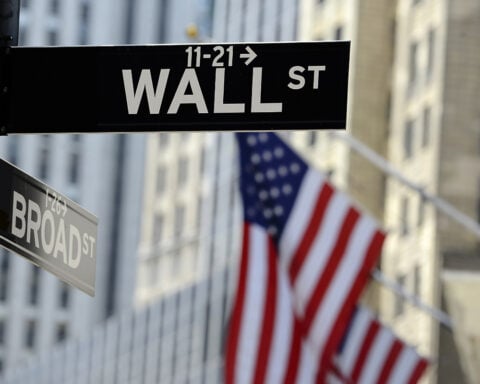In the aftermath of recent profit reports from major U.S. companies and escalating tensions in the Middle East, Wall Street experienced noticeable jitters on Wednesday. The mixed financial results and the fear of war in the region added uncertainty to the markets.
The S&P 500 opened with a dip of 0.6%. Meanwhile, by 9:45 a.m. Eastern time, the Dow Jones Industrial Average had already seen a 110-point decrease, marking a 0.3% fall, and the Nasdaq composite went down by 0.8%.
Overnight, the crude oil prices surged after a tragic explosion at a Gaza Strip hospital ignited widespread protests throughout the Middle East. Yet, as the day wore on, oil prices seemed to steady somewhat. On the other hand, gold maintained its upward trajectory, with many investors seeking safer havens following Hamas’s unexpected October 7th attack on Israel.
Within the airline sector, United Airlines stocks dropped significantly by 7.5%. The slump came in response to the airline’s revelations about the potential impact of rising fuel costs and the suspension of flights to Tel Aviv on its profits. The company’s profit forecast for the last quarter fell short of what analysts had predicted.
Despite reporting higher profits for the summer than anticipated, Morgan Stanley’s shares took a 5.9% hit. The dip was attributed to the company’s wealth management business not performing as strongly as expected.
However, not all was gloomy on Wall Street. Procter & Gamble, the behemoth behind brands like Charmin, Febreze, and Oral-B, witnessed a 3% increase in its stock after reporting impressive profit margins for the recent quarter. This came after the company raised the prices of its products.
Elevance Health also experienced a positive surge, with its stocks climbing 2.5%. The company reported more robust earnings for the third quarter than anticipated and raised its annual profit forecast.
Despite these mixed results, there remains optimism as the earnings reporting season for the summer has only begun. Market analysts widely expect S&P 500 companies to reveal an increase in their overall earnings per share for the last quarter, marking the first rise in a year.
However, with the Federal Reserve likely to maintain high-interest rates to keep inflation in check and the bond market witnessing rising treasury yields, the stock market is undoubtedly under pressure.
Amid these financial tremors, the oil market was not left untouched. U.S. crude prices had soared nearly $90 per barrel but settled at $87.09, a 1.9% increase. Similarly, Brent crude, recognized as the international standard, was up by 1.3% at $91.04 after nearing the $93 mark.
The catalyst for this surge was the devastating explosion in Gaza, with Hamas pointing fingers at an Israeli airstrike. However, conflicting reports emerged, with the Israeli military attributing the explosion to a rocket misfired by another Palestinian militant group. U.S. President Joe Biden hinted at Israel’s non-involvement in the incident.
The primary concern among financial analysts and stakeholders is the potential involvement of major oil-producing nations like Iran, which could significantly disrupt the supply chain. Following the Gaza incident, Iranian Foreign Minister Hossein Amirabdollahian urged Muslim countries to sever ties with Israel and initiate an oil embargo.
Gold, perceived as a safer investment, rose to $1,967 per ounce, marking a 1.6% increase.
Internationally, the stock markets in Europe largely trended downward, whereas Asia showed mixed results. On another note, China reported a slowdown in its economic growth. The annual growth rate stood at 4.9% for July-September, down from 6.3% in the preceding quarter.
Corporate earnings, geopolitical tensions, and the evolving economic landscape have made financial markets particularly volatile. Investors, analysts, and stakeholders closely monitor these developments, hoping for stability and growth in the coming months.







